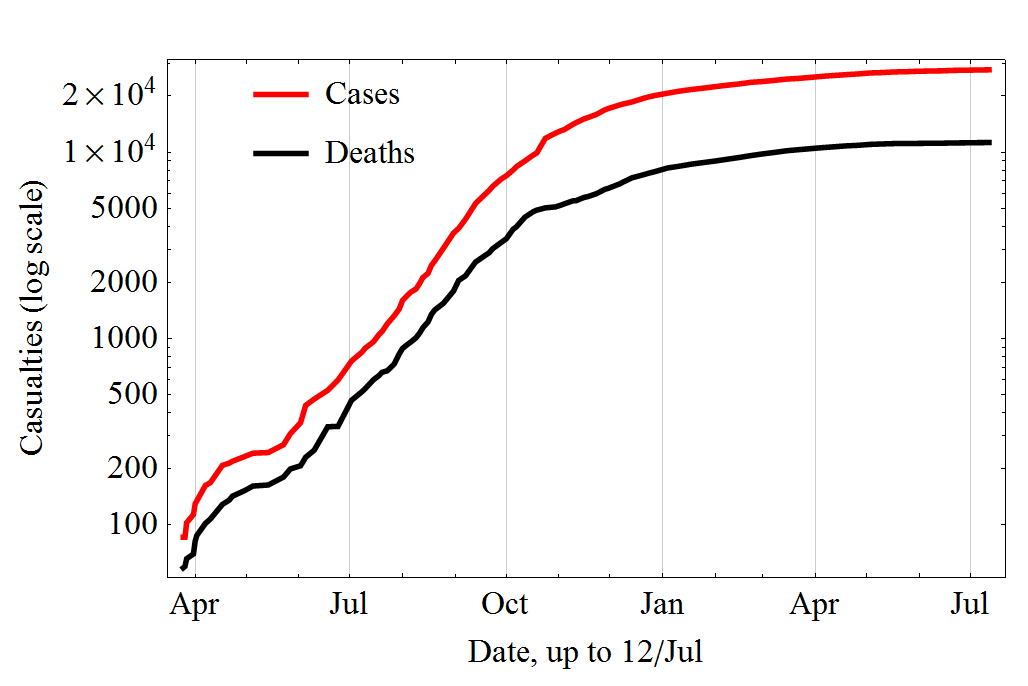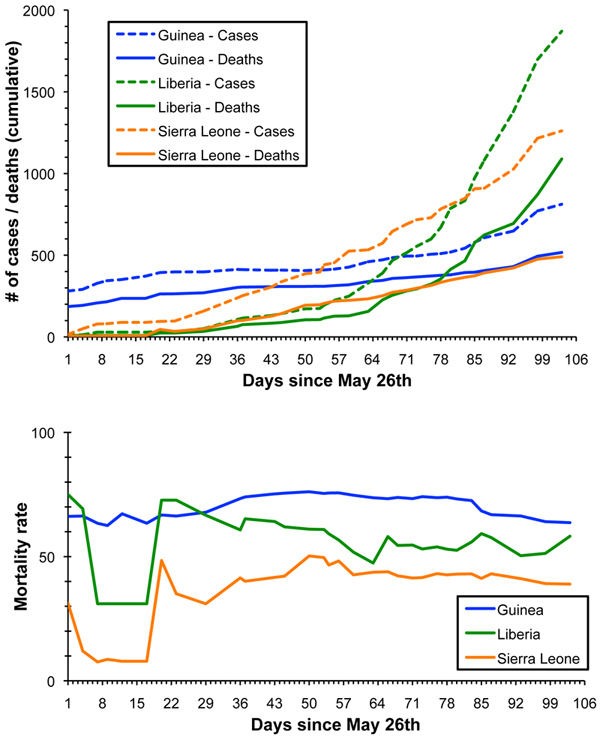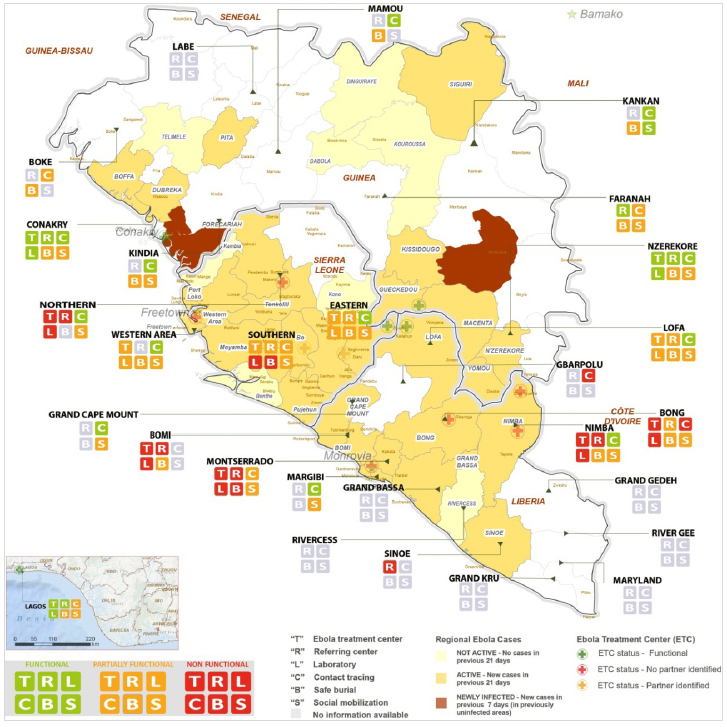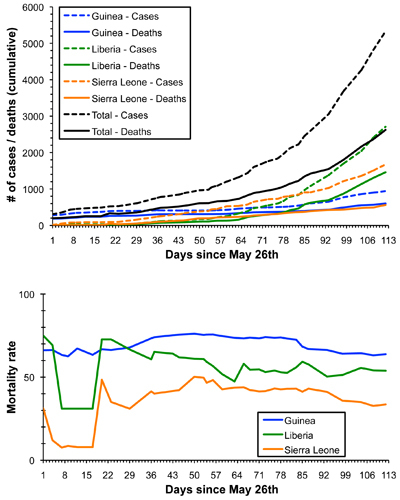Background on the Port Harcourt index case
Ebola virus was imported into Nigeria via an infected air traveller, who entered Lagos on 20 July and died 5 days later. One close contact of the Lagos case fled the city, where he was under quarantine, to seek treatment in Port Harcourt.
The close contact was treated, from 1 to 3 August, at a Port Harcourt hotel, by what would turn out to be the citys index case. This case was a male physician who developed symptoms of weakness and fever on 11 August and died of Ebola on 22 August. His infection was confirmed on 27 August by the virology laboratory at Lagos University Teaching Hospital.
The male physician in Port Harcourt is therefore indirectly linked to Nigerias first case.
The case history of the index case in Port Harcourt is important, as it reveals multiple high-risk opportunities for transmission of the virus to others.
After onset of symptoms, on 11 August, and until 13 August, the physician continued to treat patients at his private clinic, and operated on at least two. On 13 August, his symptoms worsened; he stayed at home and was hospitalized on 16 August.
Prior to hospitalization, the physician had numerous contacts with the community, as relatives and friends visited his home to celebrate the birth of a baby.
Once hospitalized, he again had numerous contacts with the community, as members of his church visited to perform a healing ritual said to involve the laying on of hands. During his 6 day period of hospitalization, he was attended by the majority of the hospitals health care staff.
On 21 August, he was taken to an ultrasound clinic, where 2 physicians performed an abdominal scan. He died the next day.
The additional 2 confirmed cases are his wife, also a doctor, and a patient at the same hospital where he was treated. Additional staff at the hospital are undergoing tests.
Given these multiple high-risk exposure opportunities, the outbreak of Ebola virus disease in Port Harcourt has the potential to grow larger and spread faster than the one in Lagos.
The response
Nigerian health workers and WHO epidemiologists are monitoring more than 200 contacts. Of these, around 60 are considered to have had high-risk or very high-risk exposure.
The highest-risk exposures occurred in family members and in health care workers and patients at the facility where the index case was hospitalized. Church members who visited the index case while he was hospitalized are also considered at high risk.
The government, supported by WHO, UNICEF, and MSF (Doctors without Borders), has introduced a number of emergency measures. More will be introduced later this week.
An Ebola Emergency Operations Centre has been activated, with support from the US Centers for Disease Control and Prevention. A mobile laboratory, with RT-PCR diagnostic capacity, is set up and functional.
A 26-bed isolation facility for the management of Ebola cases is in place, with plans for possible expansion. WHO has 15 technical experts on the ground.
Twenty-one contact-tracing teams are at work; they have good training, provided by WHO, and adequate transportation, thanks to government support. Two decontamination teams are equipped and operational, as is a burial team.
Port Harcourt is the capital of Rivers State. WHO, together with the Rivers State Port Health Service, has assessed public health measures at airport gates and other points of entry. Screening is under way at domestic and international airport gates.
Social mobilization efforts have been stepped up, initially targeting key community and religious leaders.
However, civil unrest, security issues, and public fear of Ebola create serious problems that could hamper response operations. Military escorts are needed for movements into the isolation and treatment centre.






